Wooden huts, green fields, intercity roads - through the window of the Boeing plane we seem to be hovering over the steppes of the Negev, not advancing towards the landing in Casablanca.
A few minutes pass, and we are already walking through the dazzling corridors and are greeted with "Bonjour, Monsieur."
66 years later, the imprint of the French occupation is still evident.
Welcome to Morocco.
Casablanca is the largest city in Morocco, with more than 4 million inhabitants.
Like Tel Aviv, it also serves as the economic capital of the kingdom.
The city, considered the sea gate of the kingdom, was established in the seventh century as a small fishing village on the shores of the Atlantic Ocean, and was destroyed several times by the Europeans.
In the 18th century, the city was re-founded by a sultan from the Alawite dynasty, who still rules Morocco.
As a major trading city, Casablanca also housed the largest Jewish community in the country.
And evidently, two of the townspeople I meet are confident that I am one of their own.
Still, I myself am half Moroccan: my mother's family immigrated to Israel in the 1960s, and my grandparents settled in Yeruham and raised eight sons and daughters.
When she grew up, my mother left for Gush Dan and married my father, then an officer in the Air Force and a native of the country.
About a year ago, my mother and grandmother, Fanny Kleiman and Sima Knafo, passed away, one after the other.
Visiting the former Jewish neighborhood of Casablanca I even find the pink, peeling building that was their home.
One day, my grandmother once told me, my toddler mother fell from the balcony of the apartment and was trapped in the clotheslines between heaven and earth.
The landlord responded to my grandmother's calls, and together with his friend spread a rug over the street dust.
Another friend went up to the apartment and released my mother's leg from the clotheslines.
She fell straight into the carpet, and survived unscathed.
It's a simple place.
Slum.
The children run around the asphalt-free alleys and indulge in an old ball.
When they notice me taking pictures of the buildings, they gather around me asking for a picture from their smartphone.
One of them smiles and marks "V" in his hand.
Then he insists on seeing how it turned out in the picture.
The former Jewish neighborhood.
Became a slum, Photo: Shahar Kleiman
It's weird to travel abroad and not feel like a stranger. That's it, maybe, when the women's black and round eyes are your mother's eyes, when the peddler's thin mustache in the market is a tangle of a tangle, when the skin of passersby is your brother's orange skin.
"Power Doubling Partnership"
About two years have passed since the Abrahamic agreements were signed.
After almost two decades, Israel and Morocco have resumed relations severed during the bloody days of the second intifada.
While normalization has a distinct economic aspect, it enjoys a deep cultural connection.
It is not only about ties between countries, but also about Diaspora relations, and Israel is perceived in Morocco as the seat of the second largest Moroccan Diaspora in the world after France.
"There is a concept called 'dialna' (ours; shek), so it is easier for Moroccans and Israelis to work together," explains Einat Levy, head of economics at the Israeli embassy in Rabat.
For them, Moroccan Israelis are closer to them than the Egyptians or the Jordanians.
When Israel is considered part of the Middle East in Israel, it sounds strange to them. "
"The image of Morocco," she adds, "is still related to nostalgia from the 1950s and 1960s and to what Israelis heard from their grandmother about the lives of Jews there, even though the country has undergone great change since then. Moroccans do not know much about Israel beyond what they heard in the news ".
Against the background of the renewal of relations, Israeli companies from the high-tech industry are interested in reaping the fruits of normalization, including economic cooperation with investors and local businessmen.
The Moroccan authorities, for their part, are watching with bated breath as promising young people leave the country in search of opportunities in Europe and America.
Renewal of relations with Israel could, therefore, be a solution to this challenge.
"Morocco's experience in doing business in Africa and the convenient basis it serves for activity on the continent could be Morocco's contribution to Israeli exporters. It could be a doubling of power partnership for both sides," Levy notes.
Isam al-Haddadi is one of the young people who embodies the promise.
He has been working for the Israeli company Check Point for a year and nine months.
In recent months he has been the head of the sales team of software security technologies.
If you happen to work while away from home - you probably used the security software he markets.
We meet at a conference in Casablanca, where 13 memoranda of understanding are signed between Israeli and Moroccan bodies.
The main goal is to promote collaborations in the high-tech industry, including mutual investments in the fields of green energy, food engineering and agriculture.
Isam (44) is currently living in Casablanca.
He graduated from a university in Munich and worked for high-tech companies in Germany and the United Kingdom.
He laughs a lot, and those who just know him may think he's a young man in his 20s.
Since he started working for the company, he has visited Israel several times, so between sentences he throws out Hebrew words like "Thank you very much."
Isam loves Israel, especially Jerusalem, Herzliya and the beach promenade.
"We (Israelis and Moroccans; SQ) communicate much better," he says. "Thinking is business, without wasting time.
Which is also true of my way of thinking. "
Currently, Isam is a lone swallow in Israeli high-tech.
He knows only ten other Moroccans who work in Israeli companies like his, but the hope is that the few will become hundreds.
Naturally, the high-tech industry in Morocco is in its infancy.
During 2021, start-ups managed to raise only $ 29 million in capital, "small money" compared to the mountains of cash in Israeli industry.
However, this is a significant jump compared to 2020, when funding was about $ 11 million.
Beyond that, the local industry faces bureaucracy that makes it difficult for entrepreneurs to set up companies quickly, and businesses take time to stabilize.
"Our intention is for Moroccans to be able to integrate into high-tech companies when they work from their country, so-called Offshore," explains Avi Hasson, CEO of Startup Nation Central, which initiated the conference. "We are promoting some cooperation between Israeli and Moroccan companies in the field, and the model will also be examined in the United Arab Emirates and Bahrain."
The tragedy of the water
The rescue operation of the boy Ryan.
Pirate water wells have become death traps, Photo: AFP
Morocco is not only bothered by brain drain.
One of the burning issues that lies ahead is the climate crisis.
A pair of bankers explain to me about difficulties in agriculture stemming from global warming and the war in Ukraine, which has led to a sharp rise in world wheat prices.
Their bank is responsible for providing loans to agricultural entrepreneurs.
At the conference, they hope to promote collaborations with Israeli start-ups, which will reduce the risk taken by lenders.
A local businessman says he came to the conference to hear about ways to use water more efficiently.
The kingdom is currently facing the worst drought in 30 years, and its consequences, he says, are seen mainly in the periphery, where agriculture is a major employment industry and infrastructure is underdeveloped.
Moroccan Water Minister Nizar Bracha recently explained in a speech to parliament that the sharp drop in precipitation has diluted the water level in the dams reservoirs in the kingdom.
The dams, erected by the King of Morocco in the 1990s, are no longer sufficient to cope with the drought.
Hence the great importance of foreign publications on contacts of Israeli companies with Morocco regarding water desalination projects, one of them in Casablanca.
In the shadow of the feverish search for water sources, one of the common phenomena is the quarrying of pirate wells.
Often the well does not produce water at all and remains empty, and then it becomes a death trap.
One of the latest victims is 5-year-old Ryan, who fell into such a well last February.
Ryan survived for long hours, wounded and bruised, at the bottom of a well in the north of the country, but when he was finally rescued, the rescue team was forced to determine his death.
The tragedy led the Moroccan government to conduct a comprehensive survey of dangerous wells.
Each year the authorities document about a thousand construction violations in the excavation of unlicensed wells, but so far there is no complete data.
In addition, the government has launched a campaign to raise awareness among private well diggers.
And also - the Iranian threat
In Morocco, Israel is seen as a solution, whether it is irrigation technologies, seawater desalination and food engineering, or opportunities for young Moroccans.
It is not for nothing that King Muhammad VI gave his blessing to the agreements of Abraham.
And yet, in the kingdom there is also expression of different opinions.
Various elements in Morocco, even if they are few, do not approve of normalization with Israel, and even go out to protest.
The Justice and Development movement, a sister party of the Muslim Brotherhood, held the post of prime minister only about a year and a half ago, but the normalization agreements with Israel put it in real embarrassment.
On the one hand, it is an anti-Israel party on whose behalf the prime minister, Saad a-Din al-'Uthmani, even congratulated Hamas leader Ismail Haniyeh on his "victory" in Operation Wall Guard.
On the other hand, it is a party that sat in a government that renewed relations with Israel in exchange for American recognition of Morocco's sovereignty over Western Sahara.
The combination of populist rhetoric and the dictates of the king seems to have been one of the causes of the dramatic collapse of the Islamist party in the 2021. Election from 125 seats it dropped to only 13 in the lower house with 395 representatives, as part of the Moroccan parliament with 515 members.
It was a jarring ending chord to an entire decade in power, the one that began following the Arab Spring protests.
But the wheel may turn around for Israel.
The Justice and Development Party draws its power from the weaker sections.
An economic crisis could bring the Islamist party back to the forefront, and as a result cause a setback in relations with Israel or a significant slowdown in the initiatives at stake, precisely those that can help Morocco.
Morocco also has a security flavor in connecting with Israel, when it comes to the Iranian threat.
As in other arenas in the Arab world, Iran undermines regimes by supporting local militias.
Following allegations of Iranian assistance to the Polisario Front in Western Sahara, Rabat severed ties with Tehran in 2018.
Moroccan Foreign Minister Nasser Burita then accused Hezbollah operatives of training and arming members of the organization.
Against this background, in November 2021, a security memorandum of understanding was signed between Israel and Morocco, which laid the groundwork for intelligence cooperation and the purchase of weapons.
According to foreign reports, IAI and Morocco have been in talks for several months about a business incubator for developing UAVs. Factories for the production of unmanned aerial vehicles.
The conflict over Western Sahara has been going on for 50 years.
The Polisario Front enjoys the support, hospitality and funding of Algeria, and Morocco controls most of the region with the help of the wall it erected from south to north, which separates the eastern territory controlled by the Polisario Front.
In 2007, Morocco proposed establishing autonomy in Western Sahara, but encountered opposition from the organization.
It is American recognition of Moroccan sovereignty that has allowed the state to suppress the claims of the Polisario, but even that is not always enough.
Spain, for example, initially refused to join the American recognition of the region, and even allowed the leader of the Polisario, Brahim R'ali, to undergo treatment against Corona in its territory.
This conduct provoked anger in Rabat, and for more than a year there was tension between the countries.
It was also reported at the time that the phones of Spanish Prime Minister Pedro Sanchez and other senior officials in Madrid were hacked by the Israeli spyware Pegasus.
The Spanish suspicion fell on officials in Morocco, but Spain withdrew from the accusations and later made further gestures towards Rabat.
Finally it was Spanish support for the Moroccan proposal for the establishment of autonomy in Western Sahara that put an end to tensions between the parties.
This affair may have a lesson for Israel regarding relations with Morocco - it takes a lot of time and effort to cultivate the relationship with the kingdom.
It is very easy to sabotage them.
The writer was a guest of Startup Nation Central at a conference in Casablanca
Were we wrong?
Fixed!
If you found an error in the article, we'll be happy for you to share it with us

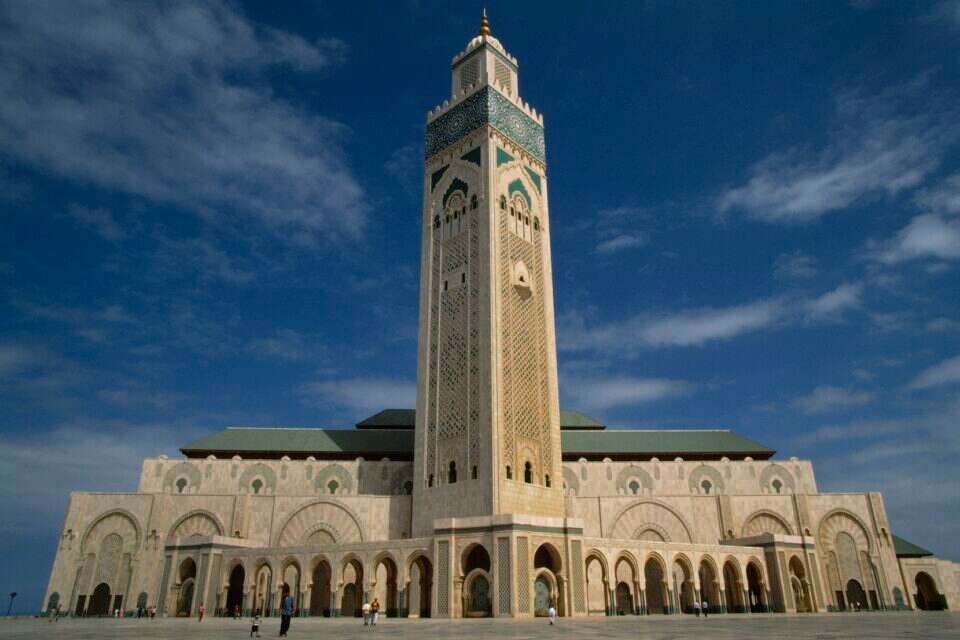


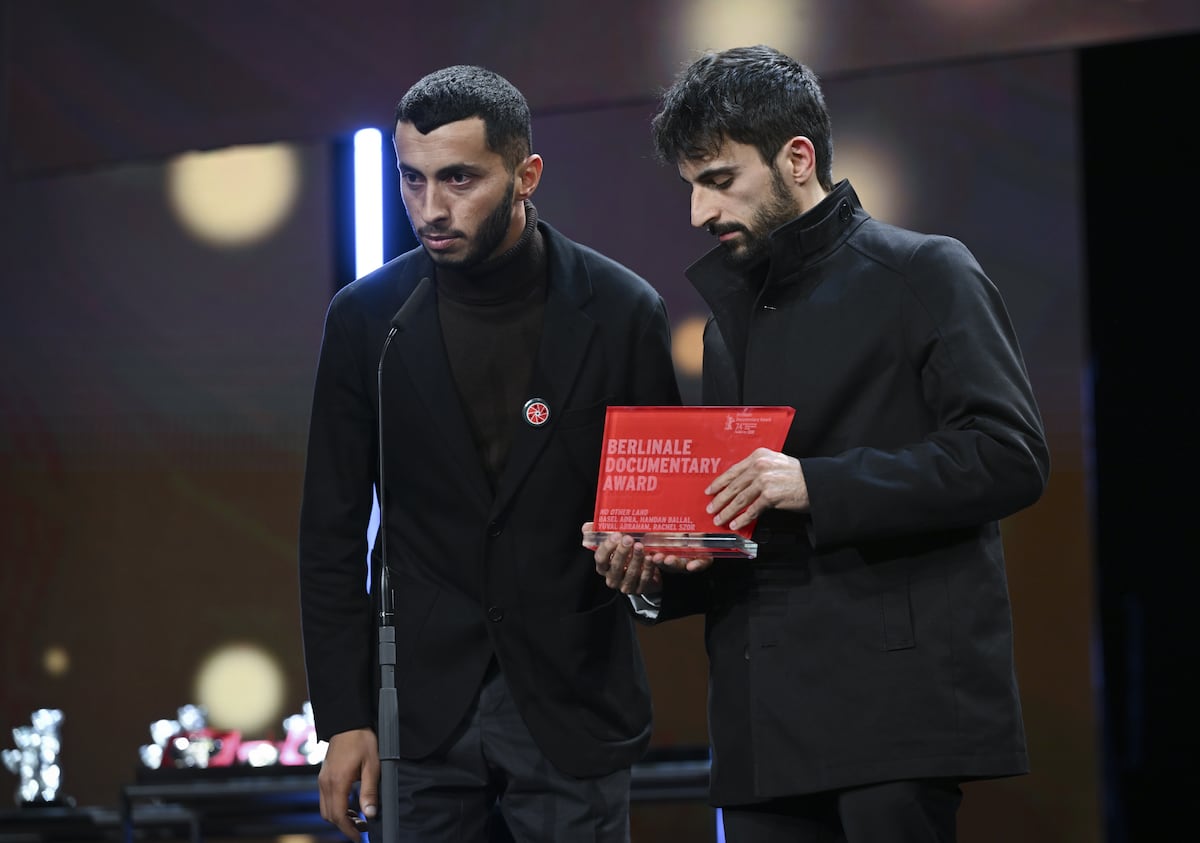
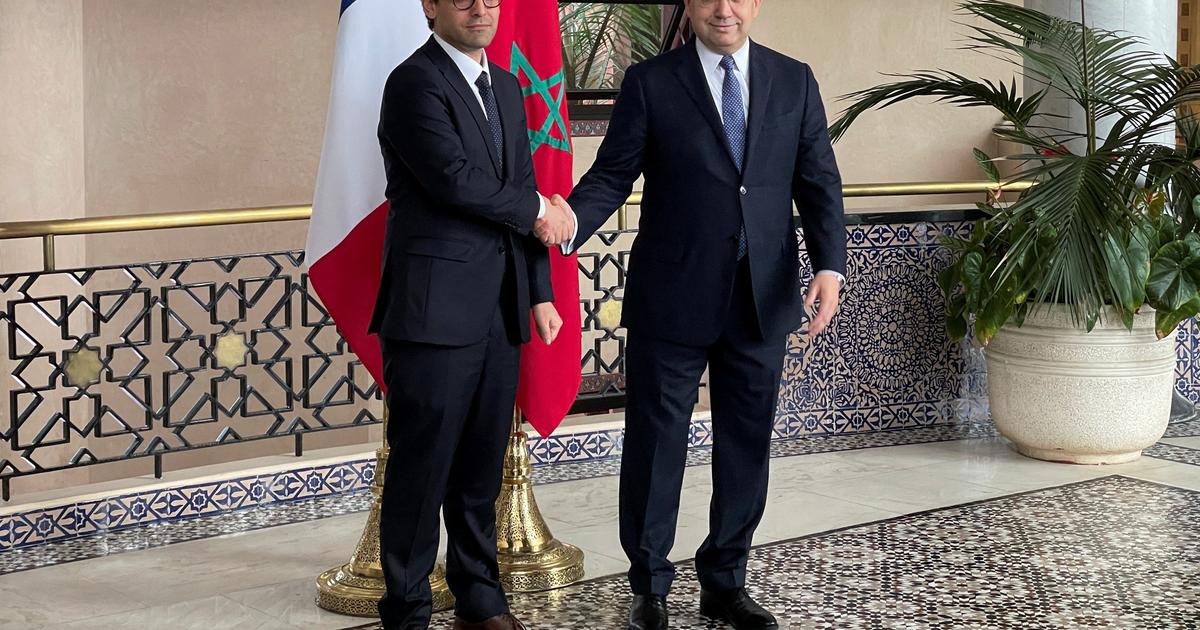


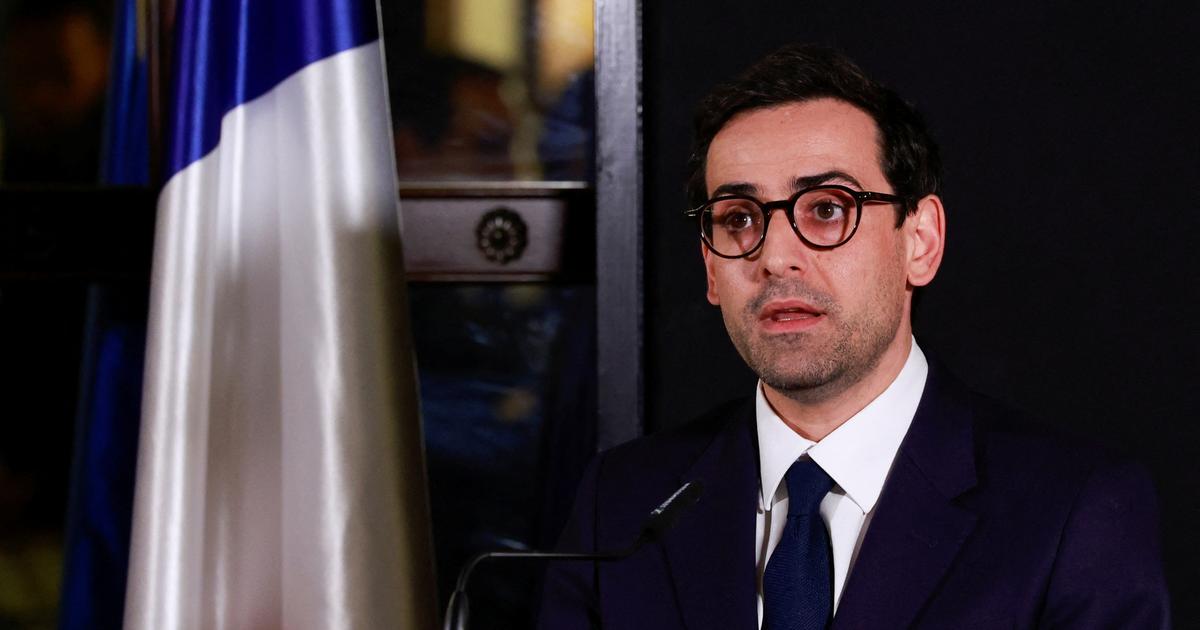
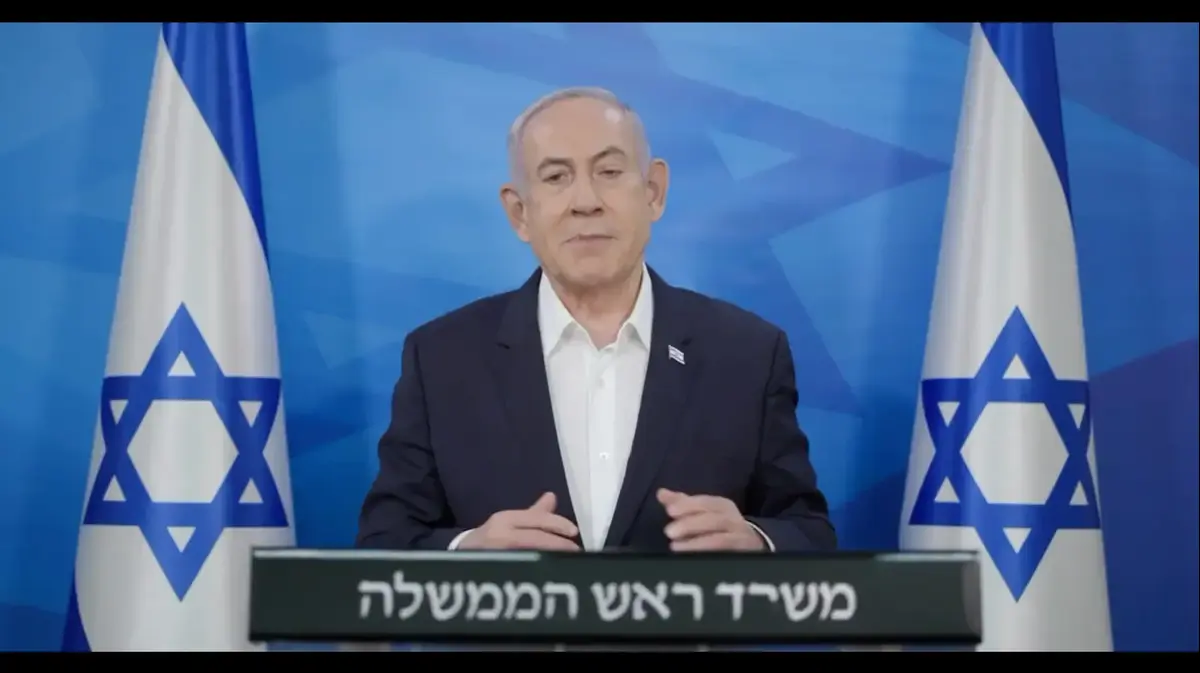

/cloudfront-eu-central-1.images.arcpublishing.com/prisa/KMEYMJKESBAZBE4MRBAM4TGHIQ.jpg)


/cloudfront-eu-central-1.images.arcpublishing.com/prisa/EXJQILQR5QI7OMVRTERD7AEZAU.jpg)
